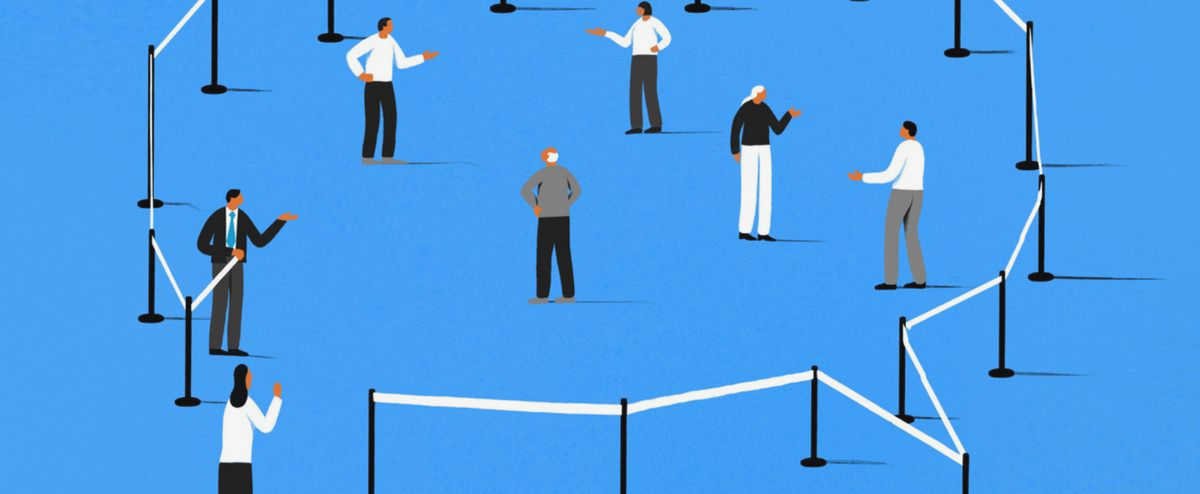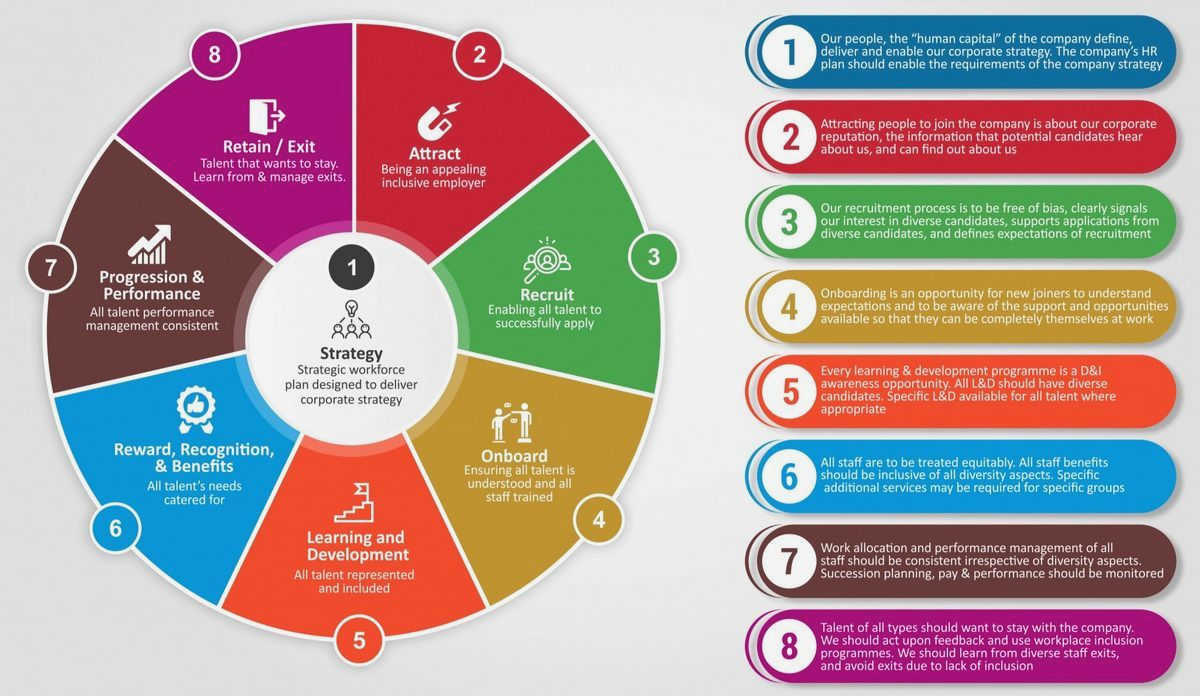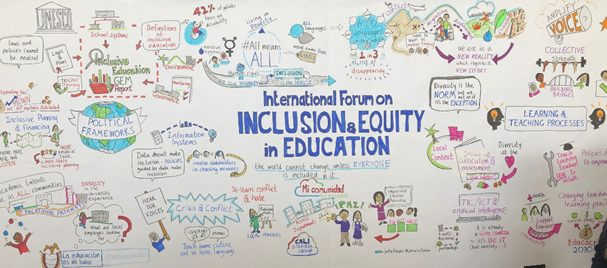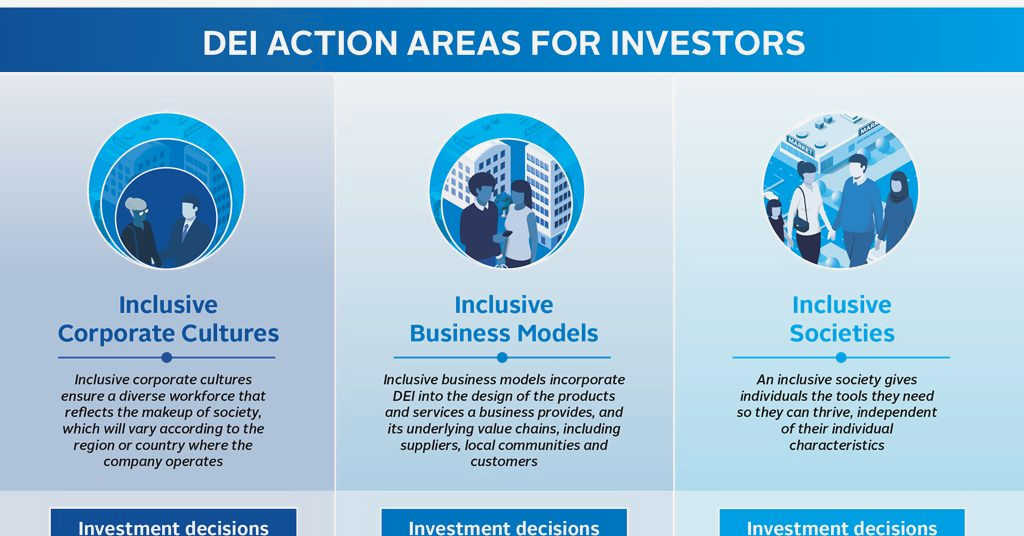In today’s world, the principles of equity, diversity, and inclusion have become crucial in the pursuit of equal rights for all individuals. Civil society plays a vital role in advancing these principles, as it consists of organizations and individuals who advocate for social change, equality, and justice. Through their collective efforts, civil society organizations work towards dismantling systemic barriers and promoting inclusive policies that ensure equal opportunities for everyone.
One of the key aspects of civil society’s role in advancing equal rights is promoting awareness and education. Organizations and individuals work tirelessly to raise awareness about the importance of equity, diversity, and inclusion in society. They highlight the impact of discrimination and prejudice on marginalized communities and strive to educate the public on the need for equal treatment and opportunities for all.
Civil society also plays a significant role in advocating for policy changes that promote equity, diversity, and inclusion. Through lobbying, organizing campaigns, and engaging with policymakers, civil society organizations work to implement policies that address systemic disparities and promote equality. They emphasize the importance of inclusive legislation in areas such as employment, education, healthcare, and housing to ensure fair and equal treatment for all individuals.
Furthermore, civil society organizations provide a platform for marginalized voices to be heard. They empower individuals from underserved communities to share their experiences and perspectives, amplifying their voices and demands for equal rights. By providing these platforms, civil society helps to foster a more inclusive and diverse society where everyone’s rights and needs are recognized and respected.
Understanding Equity as a Driving Force for Change
Equity, in the context of civil society and equal rights, refers to the fair distribution of resources, opportunities, and outcomes for all individuals, regardless of their characteristics or circumstances. It recognizes that individuals have different needs, barriers, and advantages, and aims to address these differences to ensure everyone has a fair chance to thrive.
Equity is a driving force for change as it challenges the traditional concept of equality, which assumes that treating everyone the same will result in fairness. Instead, equity recognizes that treating individuals equally may not be enough to address historical and systemic barriers that certain groups face. It acknowledges that some individuals may require extra support and resources to overcome these barriers and achieve true equality.
An important aspect of equity is the concept of intersectionality, which acknowledges that individuals possess multiple social identities that intersect and influence their experiences and opportunities. These social identities can include race, gender, sexual orientation, disability status, and socio-economic background, among others. Understanding intersectionality is crucial for achieving equity, as it highlights the intersecting dimensions of discrimination and oppression that individuals may face.
In the pursuit of equity, civil society plays a vital role in advancing equal rights. Civil society organizations work towards creating inclusive environments, advocating for policy changes, and providing resources and support for marginalized communities. They amplify the voices of those who have been historically marginalized and challenge discriminatory practices and systems.
Ultimately, understanding and promoting equity is essential for creating a more just and inclusive society. It requires recognizing and addressing the structural and systemic barriers that perpetuate inequality, and actively working towards dismantling them. By prioritizing equity, civil society can contribute to the advancement of equal rights for all individuals.
The Importance of Embracing Diversity in Society
In today’s society, embracing diversity is crucial for fostering a more inclusive and harmonious environment. Diversity encompasses a range of characteristics, including race, ethnicity, gender, age, sexual orientation, religion, socioeconomic status, and abilities. By embracing diversity, society can benefit from a wide range of perspectives, ideas, and experiences, leading to innovation, creativity, and problem-solving.
Embracing diversity also helps to break down barriers and reduce discrimination. When individuals from different backgrounds come together and are valued for their unique contributions, prejudice and stereotypes can be challenged and dismantled. This creates a more equitable society where everyone has equal opportunities to succeed and thrive.
Furthermore, embracing diversity fosters a sense of belonging and community. When individuals feel accepted and valued for who they are, they are more likely to engage and participate in society. This leads to increased social cohesion and a stronger sense of unity among the population.
Embracing diversity also has economic benefits. A diverse society brings together a diverse range of skills, experiences, and ideas, which can drive economic growth and development. Companies and organizations that embrace diversity are more likely to attract and retain top talent, as individuals are drawn to inclusive and diverse environments where they can thrive and reach their full potential. In this way, embracing diversity can lead to increased productivity, competitiveness, and innovation.
In conclusion, embracing diversity in society is essential for creating a more inclusive, equitable, and prosperous world. By valuing and respecting the differences among individuals, we can foster an environment that celebrates diversity, promotes equal rights, and enables all members of society to thrive.
Fostering Inclusion in All Aspects of Life
Inclusive Education
One of the key areas in which fostering inclusion is crucial is education. Inclusive education is the practice of providing equal educational opportunities for all individuals, regardless of their race, gender, disability, or socioeconomic background. This means creating learning environments that are welcoming, accessible, and supportive of diverse students. Inclusive education not only benefits marginalized students by giving them the opportunity to participate fully in the educational experience, but it also creates a more inclusive society by challenging stereotypes and promoting understanding and empathy among students.
Inclusive Employment
Another important aspect of fostering inclusion is ensuring equal employment opportunities for all individuals. This means eliminating discrimination in hiring practices and creating a work environment that is inclusive and respectful of all employees, regardless of their race, gender, age, or disability. Inclusive employment practices not only benefit individuals by providing them with equal opportunities for career growth and financial stability, but they also benefit organizations by promoting diversity of thought and perspectives, which can lead to innovation and improved problem-solving.
Social Inclusion
Fostering inclusion in all aspects of life also means promoting social inclusion. Social inclusion is the process of ensuring that all individuals have equal access to and participation in social, cultural, and recreational activities. This includes creating spaces and opportunities where individuals from all backgrounds feel welcome and valued. Social inclusion not only benefits individuals by reducing social isolation and promoting a sense of belonging, but it also benefits society as a whole by building stronger and more cohesive communities.
Advocacy and Policy
Advocacy and policy play a crucial role in fostering inclusion in all aspects of life. Civil society organizations have a responsibility to advocate for policies and legislations that promote equal rights and opportunities for all individuals, and to hold governments accountable for their commitments to equity, diversity, and inclusion. This may involve raising awareness about the importance of inclusion, conducting research to inform policy decisions, and working collaboratively with stakeholders to develop and implement inclusive policies and practices.
In conclusion, fostering inclusion in all aspects of life is essential for building a more equitable and inclusive society. This requires efforts in areas such as education, employment, social inclusion, and advocacy and policy. By working towards inclusivity, civil society can help create a society where everyone has equal opportunities and is valued for their unique contributions.
Civil Society’s Crucial Role in Promoting Equal Rights
Within the realm of advancing equal rights, civil society plays a crucial role in promoting inclusivity, diversity, and equity. Civil society organizations, including non-profit organizations, community-based groups, and grassroots movements, are at the forefront of advocating for equal rights and creating a more inclusive society.
One of the key contributions of civil society is raising awareness about the importance of equal rights. Through public campaigns, educational programs, and advocacy efforts, civil society organizations bring attention to issues of discrimination, inequality, and social injustice. They strive to engage individuals, communities, and institutions in conversations around equal rights, challenging prevailing beliefs and biases.
Civil society also actively works towards creating platforms for marginalized communities to amplify their voices and be heard. By organizing forums, meetings, and public gatherings, civil society organizations provide space for individuals and communities to share their experiences, express their concerns, and propose solutions. This fosters dialogue and understanding, leading to the development of more inclusive policies and practices.

An essential role civil society plays in promoting equal rights is that of monitoring and accountability. Civil society organizations track the implementation of policies and legislation related to equal rights, ensuring that there is no regression or discriminatory practices. By holding governments, institutions, and individuals accountable, they contribute to safeguarding and advancing equal rights for all.
Furthermore, civil society organizations often provide support and assistance to individuals facing discrimination or seeking justice. They offer legal aid, counseling, and resources to those in need, empowering individuals to overcome obstacles and assert their rights. This critical support helps create a more equitable society where everyone has access to justice and opportunities.
In conclusion, civil society plays a crucial role in promoting equal rights by raising awareness, providing platforms for marginalized communities, monitoring accountability, and offering support to those facing discrimination. Their efforts are instrumental in building a more inclusive and equitable society where all individuals can enjoy equal rights and opportunities.
Advocacy and Activism: Amplifying Voices for Change
In the pursuit of equity, diversity, and inclusion, civil society plays a crucial role. One of the key ways in which civil society advances equal rights is through advocacy and activism. Advocacy and activism are powerful tools for amplifying voices and bringing about change.
Advocacy involves speaking up, raising awareness, and influencing decision-makers to address issues of inequity. It involves bringing attention to injustices and inequalities through various channels, such as social media, public demonstrations, and lobbying efforts. By highlighting the experiences and perspectives of marginalized and underrepresented groups, advocacy brings attention to systemic barriers and fosters dialogue for change.
Activism, on the other hand, goes beyond advocacy by actively mobilizing communities and individuals to take collective action. Activism entails organizing protests, campaigns, and grassroots movements to challenge discriminatory practices and policies. It brings visibility to marginalized communities and empowers individuals to demand change from those in power.
Through advocacy and activism, civil society organizations and individuals can amplify the voices of those who have been historically marginalized and disenfranchised. They create platforms and spaces for marginalized communities to share their experiences and advocate for their rights. By highlighting the diverse perspectives and lived realities of different groups, advocacy and activism challenge existing power structures and push for policies and practices that promote equity and inclusion.
Moreover, advocacy and activism are not limited to the local level. They can also have a global impact, as civil society organizations collaborate across borders to address issues of human rights, social justice, and equality. By connecting with like-minded organizations and individuals worldwide, advocacy and activism can create a powerful force for change that transcends national boundaries.
In conclusion, advocacy and activism are essential tools for advancing equal rights and promoting equity, diversity, and inclusion. Through these actions, civil society can amplify the voices of marginalized communities and drive meaningful change at local, national, and global levels.
The Power of Education in Shaping an Inclusive Society
Education plays a crucial role in shaping an inclusive society by promoting acceptance, understanding, and empathy among individuals from diverse backgrounds. By providing equal access to quality education for all, we can break down barriers and foster a culture of inclusivity.
1. Promoting Diversity
Education serves as a platform for promoting diversity and celebrating different perspectives. Through inclusive curricula and teaching methods, students can learn about different cultures, religions, and social identities, fostering a sense of respect and appreciation for diversity.
2. Developing Empathy
Education helps develop empathy by exposing students to diverse experiences and perspectives. By learning about the challenges faced by individuals from marginalized communities, students can gain a deeper understanding of the inequalities and discrimination that exist in society.
3. Empowering Marginalized Communities
Education empowers marginalized communities by providing them with the knowledge and skills to overcome barriers and advocate for their rights. By equipping individuals with education, they can challenge oppressive systems and work towards creating a more inclusive society.
4. Challenging Stereotypes
Education plays a vital role in challenging stereotypes and breaking down prejudices. Through exposure to diverse perspectives, students can challenge and question their own preconceived notions, thus dismantling stereotypes that contribute to discrimination and exclusion.
Overall, education has the power to shape an inclusive society by promoting diversity, developing empathy, empowering marginalized communities, and challenging stereotypes. Through education, we can create a more equitable and inclusive world for all.
Collaboration and Partnerships: Building Stronger Communities
Collaboration and partnerships play a crucial role in building stronger communities that are more equitable, diverse, and inclusive. When organizations and individuals come together, they can pool their resources, expertise, and networks to address social issues and advance equal rights. These collaborations can take many forms, including formal partnerships, alliances, and coalitions.
Through collaboration and partnerships, civil society organizations can leverage their collective strength to amplify their impact and work towards common goals. They can share knowledge and best practices, coordinate efforts, and pool their resources to address complex social challenges. By joining forces, organizations can tap into each other’s expertise and unique perspectives, leading to more innovative and effective solutions.
Collaboration can also expand the reach and influence of civil society organizations, enabling them to connect with a broader range of stakeholders and communities.
By partnering with other organizations, they can access new networks and build relationships with different sectors, including government, businesses, academia, and grassroots organizations. This can help them to reach marginalized communities, amplify their voice, and advocate for more inclusive policies and practices.
Furthermore, collaboration and partnerships can foster greater accountability and transparency.
When organizations work together, they can hold each other accountable, share resources fairly, and ensure that their efforts are aligned with their mission and values. This can help to build trust among stakeholders and create a culture of collaboration and shared responsibility.
In conclusion, collaboration and partnerships are essential for building stronger communities and advancing equal rights in the context of equity, diversity, and inclusion. Through collaboration, organizations can leverage their collective strength, expand their reach, and foster greater accountability in their efforts. By working together, civil society organizations can create more equitable and inclusive societies for all.

Promoting Equality in the Workplace: Breaking Down Barriers
1. Eliminating Bias in Hiring and Promotion
One of the key steps in promoting equality in the workplace is to eliminate bias in hiring and promotion processes. This can be achieved by implementing transparent and objective criteria for selection, ensuring diverse interview panels, and providing unconscious bias training for hiring managers.
2. Creating Inclusive Work Environments
Creating inclusive work environments is essential for promoting equality in the workplace. This involves fostering a culture of respect and inclusion, where individuals from diverse backgrounds feel valued and empowered to contribute their unique perspectives. Employers can achieve this by implementing diversity and inclusion initiatives, providing sensitivity training, and promoting open communication.

3. Providing Equal Pay and Benefits
Another important aspect of promoting equality in the workplace is providing equal pay and benefits for all employees. This includes ensuring that individuals are compensated fairly for their work, regardless of factors such as gender, race, or ethnicity. Employers should conduct regular pay equity audits, address any disparities, and provide benefits that support the diverse needs of their workforce.
4. Supporting Work-Life Balance
Promoting equality in the workplace also means supporting work-life balance for all employees. This entails offering flexible work arrangements, such as telecommuting or flexible hours, to accommodate diverse personal and familial responsibilities. Employers can also provide resources for childcare, eldercare, and other support services to help employees maintain a healthy work-life balance.
5. Recognizing and Celebrating Diversity
An integral part of promoting equality in the workplace is recognizing and celebrating diversity. This can be achieved by organizing events and initiatives that highlight different cultures, traditions, and perspectives. Employers should encourage employee resource groups and affinity networks, where individuals can connect and share their experiences, fostering a sense of belonging and inclusivity.
In conclusion, promoting equality in the workplace requires proactive efforts to break down barriers and create inclusive environments. By eliminating bias in hiring, fostering inclusive cultures, providing equal pay and benefits, supporting work-life balance, and celebrating diversity, organizations can create a workplace that values and embraces the contributions of all individuals, regardless of their background.
Addressing Systemic Discrimination: Legal and Policy Frameworks
Addressing systemic discrimination requires the implementation of robust legal and policy frameworks that actively promote equity, diversity, and inclusion. These frameworks provide the necessary guidelines and regulations to ensure that individuals are protected from discrimination and have equal access to opportunities, resources, and services.
Legal Frameworks
Legal frameworks play a crucial role in addressing systemic discrimination. They encompass laws and regulations that explicitly prohibit discrimination based on various protected characteristics such as race, gender, religion, disability, and sexual orientation. These laws set a clear standard for behavior and provide a means of redress for victims of discrimination through legal proceedings. Additionally, legal frameworks establish mechanisms for monitoring compliance, investigating complaints, and imposing penalties on individuals or organizations found to be engaging in discriminatory practices.
Policy Frameworks
Policy frameworks complement legal frameworks by providing guidance on the implementation of equitable and inclusive practices. They are often developed by government agencies, non-profit organizations, and civil society groups to address specific areas of discrimination or promote equal rights. These policy frameworks may include guidelines on recruitment and hiring practices, education and training programs, public services and accommodations, and the representation of diverse voices and perspectives in decision-making processes. By incorporating these policies into their operations, organizations can create a more inclusive and equitable environment.
Examples of policy frameworks include:
- Diversity and inclusion policies in workplaces that strive to create equal opportunities for employees from diverse backgrounds
- Education policies that aim to eliminate barriers to education and ensure inclusive learning environments for all students
- Housing policies that prevent discrimination in housing and promote equal access to affordable and quality housing
- Healthcare policies that prioritize equitable healthcare delivery and address disparities in health outcomes
By implementing and enforcing these legal and policy frameworks, societies can begin to dismantle systemic discrimination and create a more just and inclusive society for all individuals.
Creating a Better Future: The Responsibility of Every Individual
Creating a better future is not solely the responsibility of governments or organizations; it is a collective effort that requires the active participation of every individual. In order to advance equity, diversity, and inclusion, both on a local and global scale, it is important for individuals to recognize their role and take action.
One key responsibility of every individual is to educate themselves and raise their own awareness. This means being open to learning about different cultures, identities, and perspectives. By seeking out diverse sources of information and engaging in conversations with people who have different experiences, individuals can broaden their understanding and challenge their own biases.
Another responsibility is to speak up against inequality and discrimination. When witnessing acts of prejudice or exclusion, it is important to use one’s voice to advocate for equality and justice. This can be done through peaceful protests, social media activism, or simply engaging in conversations with friends and family to promote understanding and empathy.
Additionally, individuals have a responsibility to actively support marginalized communities. This can involve volunteering for organizations that promote equal rights, donating to causes that fight for justice, or simply amplifying marginalized voices and stories through personal platforms. By actively showing support and standing in solidarity with marginalized groups, individuals can contribute to creating a more inclusive and equitable society.

Lastly, individuals must hold themselves accountable and continuously strive to unlearn biases and challenge their own privilege. This requires self-reflection and a willingness to confront uncomfortable truths. By acknowledging and addressing one’s own biases, individuals can work towards creating a more inclusive future.
In conclusion, creating a better future requires the active participation of every individual. By educating themselves, speaking up against discrimination, supporting marginalized communities, and holding themselves accountable, individuals can play a crucial role in advancing equity, diversity, and inclusion.





